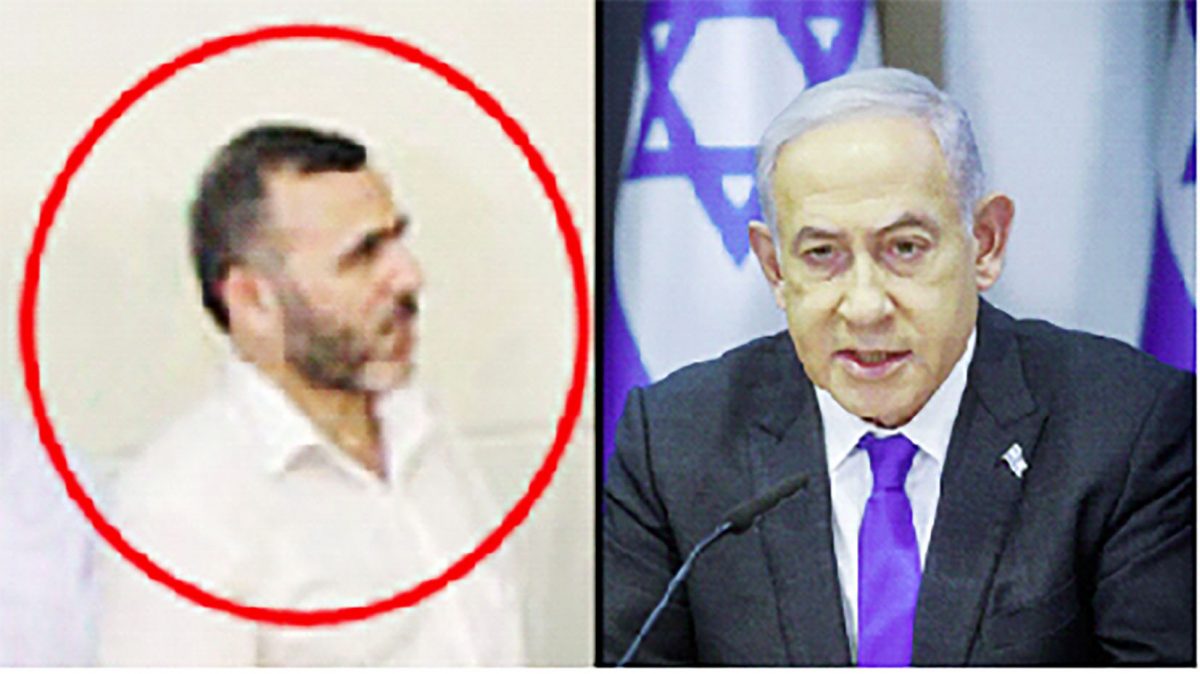JERUSALEM/CAIRO, (Reuters) – Israel was checking yesterday whether it had killed Hamas’s deputy military leader in an airstrike in Gaza, the Israeli Defense Forces (IDF) said, as prospects faded for a ceasefire to coincide with the Muslim holy month of Ramadan.
If his death is confirmed, Marwan Issa will be the highest-ranking official from the Islamist militant movement killed by Israel in five months of war that has pulverised the coastal enclave and killed tens of thousands of Palestinians.
Issa, known as the ‘Shadow Man’ for his ability to stay out of sight, was one of three top Hamas leaders who planned the Oct. 7 attack on Israel that triggered the war and who are believed to have been directing Hamas’s military operations since then.
Speaking at a briefing with reporters, IDF spokesperson Rear Admiral Daniel Hagari said Israel had bombed the Al-Nusseirat refugee camp in central Gaza on Saturday night following intelligence about the location of Issa, second-in-command of Hamas’s military wing, the Izz el-Deen al-Qassam Brigades.
Two Hamas leaders — Issa and another commander responsible for Hamas weapons in Gaza — used the underground compound that Israeli jets struck in a joint operation with Israel’s Shin Bet security service, Hagari said.
“Beside them in the tunnel there were other terrorists,” he said but added that it was still not clear whether Issa had been killed.
A Palestinian source said the Israelis had hit a place where they thought Issa was hiding, but could give no details of his fate.
“There still aren’t indications with certainty,” Chili Tropper, an Israeli cabinet minister, told Israel’s Channel 13 television on Monday.
“If indeed Marwan Issa was eliminated, who in many ways is Hamas’ military chief of staff, it’s a great achievement by the IDF and Shin Bet, he said.
Fighters from Hamas, which administers Gaza, killed 1,200 people in the Oct. 7 attack and took 253 hostages, according to Israeli tallies, an assault that sparked one of the bloodiest wars in the decades-long Israeli-Palestinian conflict.
Israel’s retaliatory military campaign on the densely populated enclave has killed more than 31,000 Palestinians, according to Gaza authorities, while infrastructure has been obliterated and hundreds of thousands are now close to famine.
Issa is on Israel’s “most wanted” list, together with Mohammed Deif, commander of the al-Qassam Brigades, and Hamas’s Gaza leader, Yahya Sinwar.
Issa’s death, if confirmed, could also complicate efforts to secure a ceasefire and the release of hostages, although Israel says talks are continuing through Egyptian and Qatari mediators.
Hamas blames Israel for refusing to give guarantees to end the war and withdraw troops. Israel wants a temporary truce to secure the release of hostages in return for letting some Palestinians prisoners go free, but has said it will not stop its war until it has defeated Hamas.
Negotiators had wanted a halt in hostilities for Ramadan, which began on Monday, but an Israeli airstrike on a house in Gaza City killed 16 people and wounded several others, Palestinian health officials said.
Israel also killed two Palestinians in an airstrike on a house in the southern city of Khan Younis as residents were breaking the first day of the Ramadan fast, Gaza health officials said.
The IDF did not immediately comment on those incidents. But it said its forces had killed about 15 militants in close combat and airstrikes in central Gaza and that commandos had targeted sites believed to be used by Hamas militants in Khan Younis.
Pro-Palestinian groups elsewhere continued to make their presence felt. Lebanon’s Hezbollah said it had launched several drones at an outpost in the Israeli-occupied Golan Heights on Monday, and two other incidents were reported in Red Sea waters where Yemen’s Houthis have been attacking ships.
At least one civilian has been killed and several others injured after Israel launched four strikes on eastern Lebanon’s city of Baalbek on Monday, two security sources and the Baalbek governor, Bashir Khader, told Reuters.
Israeli strikes had been mostly limited to the southern border region of Lebanon, although they have edged further north in recent weeks, a broadening of Israel’s campaign, a Lebanese security source told Reuters.










